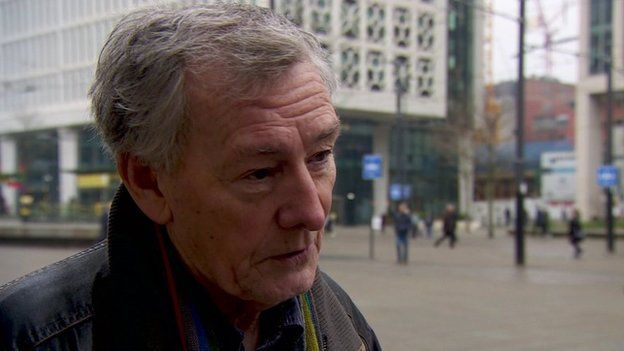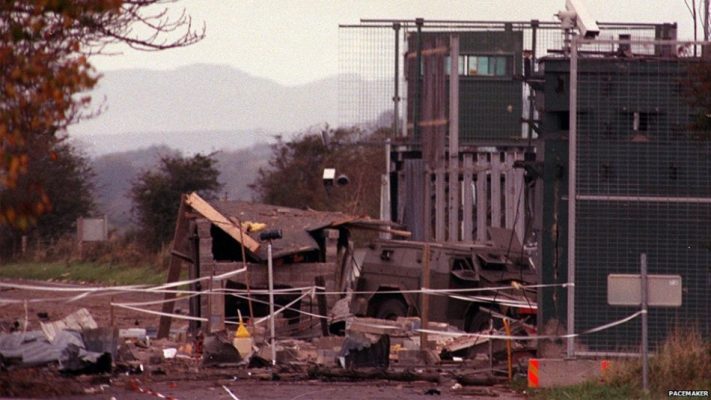
Former Derry priest and joint author of legacy report Denis Bradley
Former priest Denis Bradley said his criticism was not because everything the government said was “bad but because of the way they said it”.
The government’s plans would see an end to Troubles-related prosecutions.
It would also end future inquests and civil actions.
In 2009, Denis Bradley worked with former Church of Ireland Primate, Dr Robin Eames, to produce a report into dealing with legacy issues.
Mr Bradley criticised the British government’s plan “because of the bias of which they presented it”.
He also said a commission overseeing legacy issues should be chaired “probably by somebody like a former president of the United States”.
British Prime Minister Boris Johnson had said the legacy proposals would allow the North of Ireland to “draw a line under the Troubles”.
The proposals included provisions for a statute of limitations, a legal mechanism which would bar future prosecutions of members of the security forces as well as ex-paramilitaries.
However, all of the main local parties oppose the plans and the Assembly last week voted to oppose the UK government’s plans.
Many victims’ groups in the North of Ireland have also voiced their opposition as well as the Irish government, with some labelling the proposals a “de-facto amnesty”.
Mr Bradley, who is a former vice-chairman of the NI Policing Board, was speaking for the first time about the proposals.
He criticised the UK government for presenting their proposals primarily “to a constituency of (military) veterans and the Conservative Party itself rather than to the totality of the issue”.
Speaking to BBC Radio Ulster, he said “nobody trusts anybody in this situation” and called for the legacy process to be overseen by “people who are completely devoid of any bias within the situation”.

British Army checkpoint at Buncrana Road Derry blown up in October 1990 by IRA ‘human bomb’ which claimed the life of Patsy Gillespie who was strapped into bomb-laden vehicle
“What we need is a legacy commission of about three people – of very high quality, completely independent, completely neutral within this situation, of authority which cannot be questioned.”
He suggested the commission would be “chaired probably by somebody like a former president of the United States, that type of quality, that type of level, who will take all of the proposals that are already on the table, take all the work that’s already been done over the last 10 years or so and actually bring it to an end over the next five years”.
He said it would involve giving victims “complete access to all the files, all the records and all the people who are prepared to actually approach them and give whatever information they have”.
“The fact the British government didn’t make that the primary issue in their presentation was a major, major blunder and a major mistake,” he added.
Mr Bradley said that “fewer and fewer cases are reaching the courts” and the criminal justice system had “already ruled itself out” of dealing with legacy issues.
Tags:




